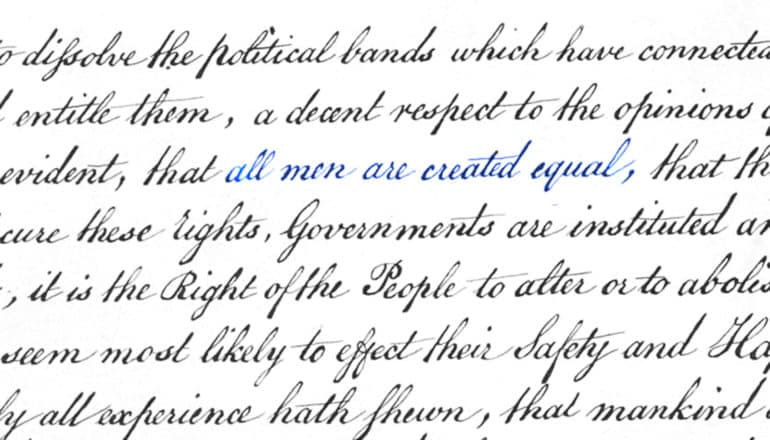
When Thomas Jefferson penned “all men are created equal,” in the preamble to the Declaration of Independence, he did not mean individual equality, says historian Jack Rakove.
Rather, what the Continental Congress declared on July 4, 1776 was that American colonists, as a people, had the same rights to self-government as other nations. Because they possessed this fundamental right, Rakove says, they could establish new governments within each of the states and collectively assume their “separate and equal station” with other nations.
It was only in the decades after the American Revolutionary War that the phrase acquired its compelling reputation as a statement of individual equality.
Rakove is professor of history and American studies and professor of political science, emeritus, in the School of Humanities and Sciences at Stanford University. His book, Original Meanings: Politics and Ideas in the Making of the Constitution (Knopf, 1996), won the Pulitzer Prize in History. Next month, Oxford University Press will publish his new book, Beyond Belief, Beyond Conscience: The Radical Significance of the Free Exercise of Religion.
Here, Rakove reflects on this history and how now, in a time of heightened scrutiny of the country’s founders and the legacy of slavery and racial injustices they perpetuated, Americans can better understand the limitations and failings of their past governments:
The post What did ‘all men are created equal’ mean in 1776? appeared first on Futurity.
from Futurity https://ift.tt/2Bn2vt9
No comments:
Post a Comment